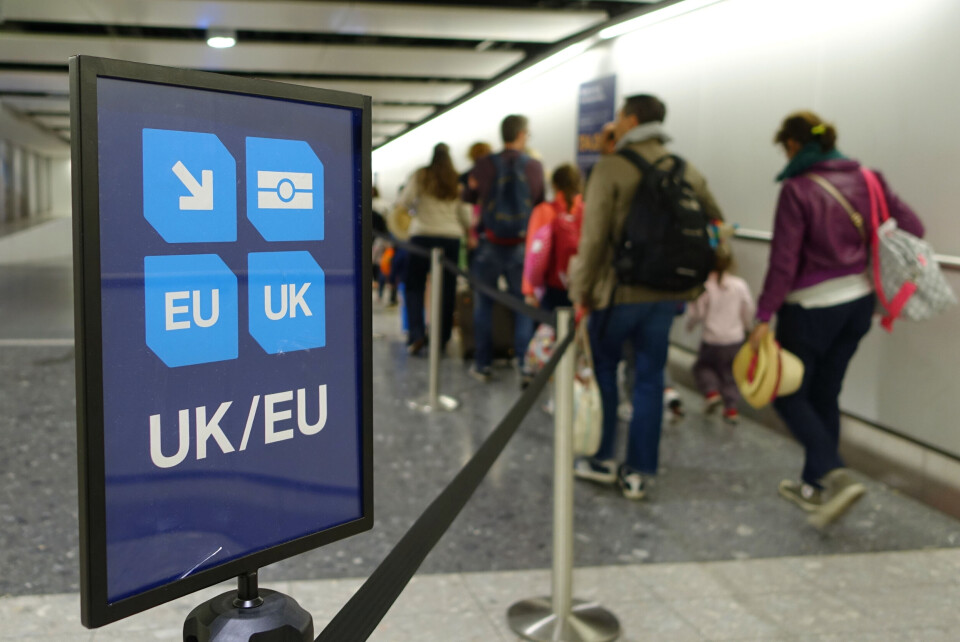-
QR code to replace paper instructions for 100 medicines in France in new trial
Paracetamol and cholesterol medication to be included in scheme that launches this autumn
-
Can visa-free travel days under 90-day rule be used to enter France before start of visa?
Be wary of spending too much time in France or you may be seen as a tax resident
-
Online ‘anti-waste’ supermarket offers deals on everyday items in France - we test it
Discounts of 10% to 50% available on brand products
UK unveils launch price of new visa waiver: when and who is affected?
It is part of the UK’s new digital border system, which is expected to be fully operational by the end of 2024

The UK’s new visa waiver scheme – set to come into force by the end of the year for some countries – will initially cost £10, the British government announced on Tuesday (June 6).
Previously, individuals from Qatar and other Gulf Cooperation Council states had to pay £30 to visit with a visa waiver, and Jordanians £100.
The new visa waiver price has only been confirmed for these nationals. It may differ for citizens of other countries when the scheme rolls out over the next 18 months.
The new scheme is called the Electronic Travel Authorisation (ETA) system and in the first phase this year it will replace existing arrangements in place for visitors who are nationals of certain states who do not need a full visa for short stays but are nonetheless asked to follow certain lightened formalities.
This is as opposed to, for example, Europeans, who currently do not need to follow any pre-registration formalities to visit the UK.
ETA will roll out for Qatari nationals in October 2023, then for other Gulf state nations, before a worldwide rollout before the end of next year.
European Union citizens who are not British and do not have legal residency status in the UK will also need to apply to visit through the scheme, by the end of 2024.
The scheme is similar to the EU’s own forthcoming digital border security and visa-waiver systems (EES and Etias).
After several delays, new implementation dates of these EU schemes are expected to be finalised at an EU Council meeting later this week.
Scheme will impact EU citizens but not British ones
Although the latest announcements focus on the Gulf states, people entering the UK from the EU will eventually be required to apply for an ETA.
Currently, all EU, EEA, and other European nationals (such as those from Andorra and Monaco) have visa-free access to the UK, but with the scheme, they will have to apply in advance to enter the country.
They will be able to do this via an app or through an official website, both set to be introduced before the scheme’s rollout.
As part of the process, applicants will need to:
- Pay the visa waiver fee
- Provide contact and passport details
- Provide a valid photo
- Answer a set of questions
The visa waiver authorisation should then be received within three working days, says the British government, providing there are no problems.
The authorisation will last for two years, or up to the expiry date of the individual’s passport – whichever comes first.
The scheme will not affect those who possess UK or Irish citizenship or residency status (including dual-nationals), who will be able to travel freely back to the UK without applying for an ETA.
All other EU citizens – including French nationals – who do not have citizenship or residency status, will be required to apply for the scheme before entering the UK.
Other non-EU citizens from countries whose nationals do not need short-stay visas, such as the US, Australia, New Zealand, Singapore, Brazil and Canada, will also need to apply for an ETA before entering the UK, once the scheme has rolled out.
Read more: Here is what we know about the UK’s new digital border scheme
EU’s border schemes awaiting rollout announcement
The UK’s scheme is similar to the EU’s own digital border systems, set to be implemented in 2024.
The Entry/Exit System (EES) will digitise entry points to the Schengen area, and the European Travel Information and Authorization System (Etias) will be an online pre-approval process for citizens of countries that currently have visa-free access to visit the EU.
The two systems are closely linked, with Etias expected to come into force about six months after the EES – as information from the latter scheme will be used to provide authorisation for visa-waiver applicants.
The EU’s Justice and Home Affairs (JHA) Council is set to meet over June 8-9, after which an official date for the rollout of the EES is expected to be announced.
Despite the expected start of the EES next year, it is thought that its implementation may be delayed until after the 2024 Olympics in Paris, to prevent delays caused by the influx of visitors into France due to the event.
Related articles
EU confirms plans to delay its new digital border system… again
New European Entry/Exit System: 9 key things to know in advance
























